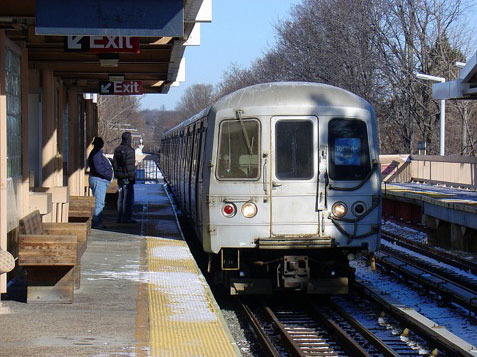How much should you pay to cross the Verrazano Bridge? Should the MTA hike the $2 fare? Should wealthier New Yorkers pay more for transportation than the less well off?
Cameron Gordon, the John J. Marchi Visiting Scholar in Public Policy, will discuss these questions within the framework of ethics and economic analysis on Monday, March 30 in the CSI Campus Center Green Dolphin Lounge from 5:00pm to 6:00pm. His talk will demonstrate that there is nothing very fair at all about the way the costs of transportation are distributed in New York City.
The paper upon which Dr. Gordon’s lecture is based addresses the fact that there has been increasing interest, both theoretically and practically, in determining the distribution of transportation system benefits and costs.
National policy in the U.S. now requires analyses of “environmental justice” for proposed and existing transportation programs, while UK policy is focused on “social exclusion,” a measure of how disadvantaged groups might be cut off from work and leisure activities because of inadequate access to services and facilities. Despite this policy interest, there remains very uneven measurement of the equity dimension of transportation investment and operations.
The paper also reviews the economic and planning literature on transport justice and equity and then does a preliminary distributional analysis of the existing transit and highway network in New York City. The basic results indicate that horizontal transport equity in New York City (i.e., how people of similar characteristics are treated) is very uneven, with the same being true for vertical equity (i.e., how people of differing characteristics are treated).
Dr. Cameron Gordon, the John J. Marchi Visiting Scholar in Public Policy at the College of Staten Island, CUNY, is Senior Lecturer in Finance at the University of Canberra (Australia). His research interests include transportation policy, government privatization and comparative public policy.
The event, which is part of the John J. Marchi Lecture Series, is free and open to the public. Please contact Professor Richard Flanagan at 718.982.2834 for additional details.


![[gallery] The Verrazano School Celebrates Its Fourth and Largest Graduating Class](https://csitoday.com/wp-content/uploads/2013/05/Verrazano-Class-of-2013-052113.jpg)

![[video] The Underground Railroad’s Trail to Freedom](https://csitoday.com/wp-content/uploads/2012/05/Debbie_Ann_Paige_5_31_2012.jpg)












